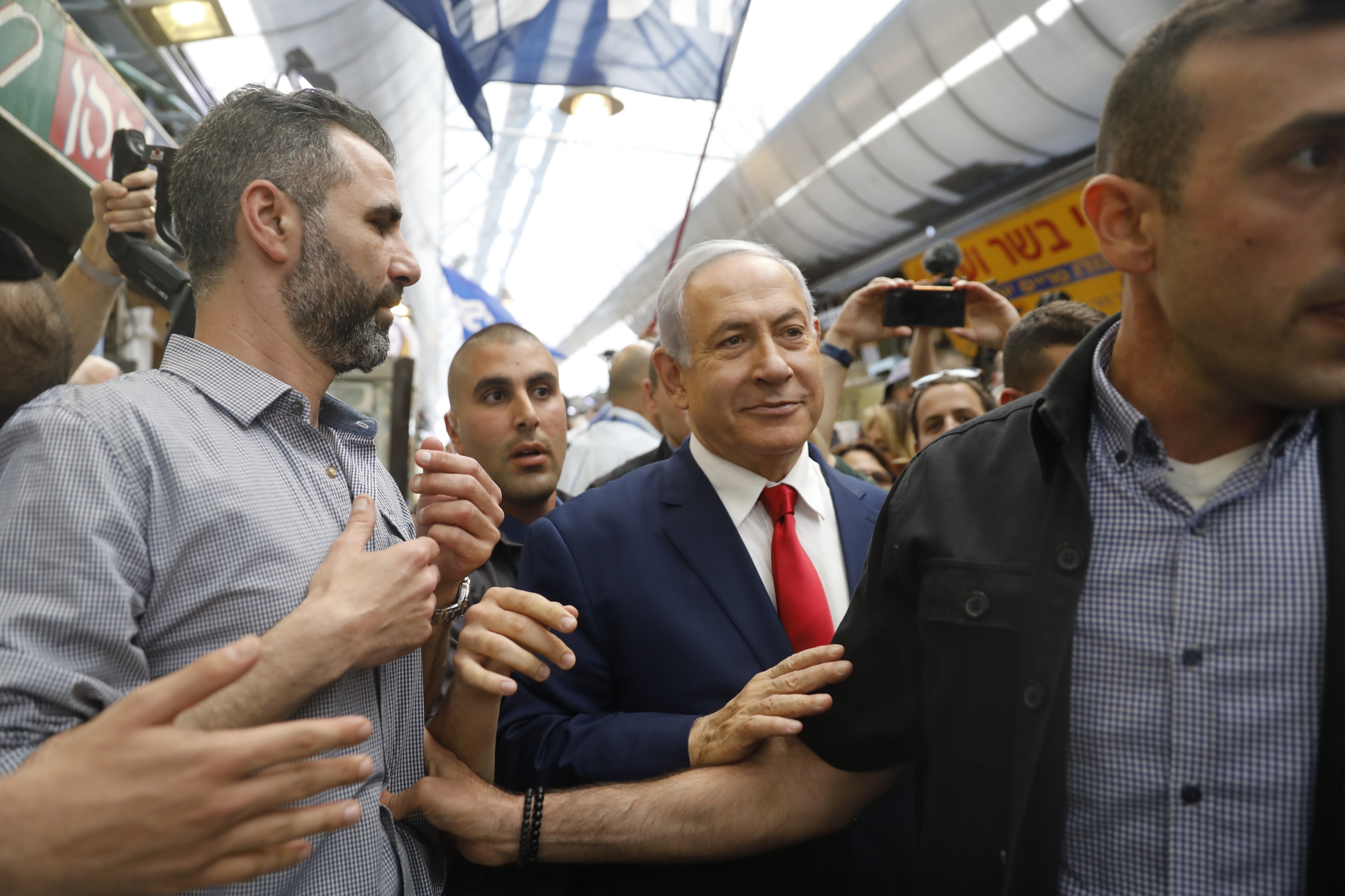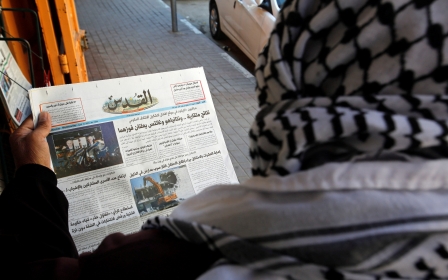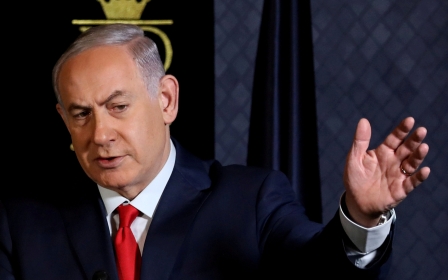Israeli press review: Annexation and immunity on the menu for Netanyahu

With victory secured, Bibi seeks immunity
Writing in Haaretz, the paper’s editor-in-chief Aluf Benn predicts Benjamin Netanyahu will pursue immunity from prosecution and annexation of parts of the West Bank.
Facing a raft of indictments over corruption allegations, Netanyahu will likely make a deal with his future right-wing coalition partners ensuring they pass legislation that will give him immunity, Benn writes.
In return, those nationalist-religious parties will seek a vow from Netanyahu that he will lobby US President Donald Trump to include Israeli annexation of the West Bank’s Area C - which represents 60 percent of the occupied Palestinian territory - in his "Deal of the Century" peace plan.
To help achieve his goals, Netanyahu will continue to erode the power of the Supreme Court, which has proved problematic for him and his coalition partners in the past.
New MEE newsletter: Jerusalem Dispatch
Sign up to get the latest insights and analysis on Israel-Palestine, alongside Turkey Unpacked and other MEE newsletters
Already, a showdown between the Israeli right and the judiciary over the controversial nation-state law is brewing.
“The first test is approaching: The present High Court will decide whether or not to hear petitions to throw out the nation-state law, in contrast to the united position of the right-wing parties that deny the court's power to invalidate basic laws,” Benn writes.
Fewer women, more ultra-Orthodox
The new Knesset is notable for having fewer female members and more religious ones, Ynet reports.
Twenty-nine women were elected on Tuesday, down from 36 in the outgoing parliament.
Out of the 120 Knesset seats, 42 go to Mizrahi Jews - the term used to refer to those of Middle Eastern origin - Ynet reports. All eight of ultra-Orthodox party Shas’s seats will be held by Mizrahis.
A full quarter of the new Knesset will be held by religious or ultra-Orthodox members. Seventeen seats will go to ultra-Orthodox candidates, up from 13, while another 14 are to be handed out to nationalist-religious politicians.
Representation of Palestinian citizens of Israel– including Druze – is dropping from a high of 16 to just 12 seats.
Meanwhile, the new Knesset will see a record number of openly LGBTQ members, who will hold five seats.
A period of reflection for Palestinian parties
The Jewish nation-state law was a game changer for parties representing Palestinian citizens of Israel, Jack Khoury writes in Haaretz.
Following a poor turnout and calls for a Palestinian boycott, he writes, the Hadash, Raam, Taal and Balad parties need a moment of introspection to reassess their political message.
"The Arab Knesset members could justifiably argue that most of the time, they do act for the good of their constituents. But in the shadow of the extreme-right government and its campaign to delegitimize them, led by Netanyahu, they had little influence,” Khoury writes.
“The enactment of laws like the so-called 'nation-state law' contributed enormously to the loss of faith in the Israeli establishment and in the Knesset.”
The failure of the four parties to stay together in the Joint List, which won 13 seats in 2015, also contributed to the sense of apathy in the community.
“Despite their attempts at displaying unity, they didn't connect on the ground, leading to internal fighting over their conflicting narrow interests. This exacerbated the disgust among voters who don’t particularly identify with any one of the parties,” Khoury writes.
“Those people may have voted in 2015, but this time, they just stayed home.”
Naftali Bennett pins hopes on soldiers
The New Right party of Naftali Bennett and Ayalet Shaked faces the embarrassment of not making the Knesset’s 3.25 percent threshold, news site Ynet reports, but they are hoping soldiers save the day.
“They hoped to secure the defence and justice portfolios - but according to the polls they won’t even make the threshold".
In his speech on election night following the exit polls, Bennett sounded optimistic, according to Ynet.
“We have patience, faith and nerves of steel. The New Right will pass,” Bennett said.
The former education minister has spent much of his career touting the military, and predicted that the votes of soldiers, which are counted last, could see his party through.
“The soldiers will take care of us,” he said.
*Israeli press review is a digest of reports that are not independently verified as accurate by Middle East Eye.
Middle East Eye delivers independent and unrivalled coverage and analysis of the Middle East, North Africa and beyond. To learn more about republishing this content and the associated fees, please fill out this form. More about MEE can be found here.




